「台灣新世代作家小說專輯」卷頭語
杜國清
《台灣文學英譯叢刊》自1996年創刊以來,已進入第二十三年,共出版45集。每集設定一個主題,以便呈現台灣文學的不同樣貌和特色,以及台灣文學史發展的脈絡,而譯介的重點在於作家的社會時代背景及其作品的特色和歷史位置。《叢刊》出版至今所涵蓋的主題内容,請參見本集的附錄。
回顧《叢刊》過去所處理的主題,我們可以看出日治時期是一個重心,包括日治時期賴和及其同時代漢文作家、以日文創作的台灣作家、皇民文學,經吳濁流,代表日本政權過渡到中國政權的過渡期,延伸到戰後,包括二二八小說、鄉土文學、現代主義作家、本土文學論、世紀末文藝風潮等等,藉以呈現台灣文學的源流和發展流向。最近幾集處理現代主義作家之後,我們注意到九○年代以後崛起的新世代作家,已成為文壇上令人矚目的現象。有鑒於此,我們應時策劃這一專輯,以期呈現台灣年輕世代作家的聲音、以及近期台灣文學發展的新動向。
為了出版這一專輯,我們特地請清華大學台灣文學所陳惠齡教授擔任客座編輯。陳教授專攻台灣現代小說,藉助她在這方面的學術成就,提供專業協助,推薦重要作家及其代表作。經與陳教授一再斟酌之後,因受到篇幅限制,我們只能選譯九家;掛一漏萬,難免有遺珠之憾。當代台灣文學的新進作家輩出,希望以後還有機會彌補、能夠再出一集。
關於台灣新世代作家的定義、範疇,及其小說作品的特殊風格,陳教授在導論中已提出簡要的概述,且針對九位作家的作品特色,一一加以說明,不再贅述。我們選譯的作品,只限於短篇小說。新世代小說的特點,諸如鄉土題材、家族故事、俚俗人物、民俗儀典、地誌景觀、比喻修辭等的敘述方式和表現技巧,與前行代的書寫類型迥然不同。一如導論所指出的,「在形式操演與構設想像中,已然具有代際差距與書寫美學的變異性」。換句話說,他們的書寫模式,「新世代迥異於前行代作家的鄉土感覺,尤在於趨近展演『知識景觀』與『美學策略』,或是轉為傳統與現代種種衝突下的一種『辯證性』與『學院派』的哲思。」藉此,新一代的作家詮釋他們所想像或經歷的當代現實,進而構建出鄉土台灣的現代風貌。
然而,從翻譯的角度而言,這一特徵也構成了翻譯上的特殊困難。因此,對譯者所接受的挑戰和功力,我們特別表示敬意和讚賞,儘管有些地方仍會顯得艱深費解,我們只能說我們已盡了最大的努力和妥協,請讀者諒察。本叢刊這一專輯,承陳惠齡教授盡心盡力惠予協助,包括討論主題、推薦作品、撰寫導論、聯繫作者提供相關資訊等,使編輯構想能夠實現和如期完成,謹先致以最大的謝意。本集的譯者,除了在專業上享有盛名之外,也是本叢刊的常年的支持者,同時我們歡迎台灣中興大學台文所施開揚教授加入我們的翻譯團隊,為《叢刊》注入新的活力。他們對翻譯這九篇小說的挑戰所付出的努力和合作、勞苦功高,我深表敬佩和感謝。在編譯作業上,編輯同仁羅德仁教授為台灣文學英譯的積極參與、志同道合,我們彼此合作無間,更是值得特別感謝。
此外,臺大臺灣文學研究所博士候選人凃書瑋,獲得教育部千里馬計劃的贊助到我校繼續研修,同時參與譯稿的審閱,我校東亞系學生柏澤楷讀書和工作都很認真,也積極參與譯稿的校對和最後的修訂,還有台灣研究中心在譯稿編輯作業上的協助的白安吉和蔡瑞齡兩位的修訂和編輯,以及臺大出版中心嚴嘉雲在印刷製作和封面設計上的配合協助,也是這一專輯能夠順利出版的一大關鍵,再次表示感謝。
Foreword
Foreword to the Special Issue on New Generation Fiction Writers of Taiwan
by Kuo-ch’ing Tu
T aiwan Literature: English Translation Series started its publication in 1996, and over the course of twenty-three years it has published forty-five issues. Each issue deals with a selected theme, and seeks to present various features of Taiwan literature with the intention of illuminating aspects of its historical development. The works to be translated are chosen with the aim of shedding light on the social background of the writers and their times, as well as on the special qualities of their works, and their historical position. For your reference, the themes that have been covered in previous issues can be found as an appendix at the end of this issue.
In looking back, we found that many of our themes in the past took the colonial period as a focus, including Lai Ho and his contemporaries who were writing in Chinese, Taiwanese writers who were writing in Japanese, the Imperial subject literature, and down through Wu Cho-liu and writers representing the transitional period from the Japanese to Chinese regime. The line extends to the postwar period, including February 28th fiction, regional literature, Modernist writers, the nativist view, and fin de siècle trends in the arts and literature. From these works we observe the source fountain of modern Taiwan literature and its developmental tendencies. After dealing with Modernist writers in several recent issues, our attention was directed to the new generation writers who appeared in the 1990s to become a conspicuous phenomenon in literary circles. Taking note of this new development, we resolved that in this special issue we would introduce the new voices of the younger generation writers of Taiwan, and the new directions in the development of Taiwan literature that they represent.
For this special issue, we invited Professor Chen Wei-lin of the Graduate Institute of Taiwan Literature, National Tsing Hua University, to serve as the guest editor. Professor Chen is an eminent scholar specializing in the modern fiction of Taiwan. We have availed ourselves of her expertise in the field for assistance in recommending important writers and their representative works. After careful consultation with Prof. Chen, and with the limited space available for each issue in mind, we could only select nine authors for inclusion in this issue. This means that many excellent and noteworthy works have been left out. In fact, a large number of talented young writers are constantly coming to the fore, and we hope to have an opportunity to come out with another issue on a similar theme in the future.
Regarding the definition and basic categorization of the new generation writers, and the characteristic styles found in their works, Professor Chen has provided a concise explanation in her introduction. This is especially so with regard to the characteristics of each of the nine selected authors. The introduction provides very helpful information for the readers, and there is no need to reiterate here. It is just unfortunate that our selection of works to be translated is limited to short stories. The characteristic themes employed by the new generation fiction writers, such as local subject matter, family stories, characters from marginalized social classes, folk rituals, chronicles of physical terrain, metaphorical rhetoric, etc. as well as their narrative modes and techniques of expression, are quite different from the writing styles of their predecessors. As pointed out in the introduction, “in their use of form and imaginative construction they already display transitional divergences and variations in writerly aesthetics.” In other words, in their modes of writing, “the New Generation and the previous generation differ vastly… in their sense of country, especially… in their use of ‘intellectual landscapes’ and ‘aesthetic strategies.’” These emerging writers have an encyclopedic knowledge, represented through their literary techniques. Thus, the new generation writers interpret and explain the contemporary realities of their imaginings and experience in their attempt to construct a modern form of Taiwan nativism.
However, from the perspective of translation into a foreign language, such characteristics can present special difficulties. Thus, we owe special admiration and appreciation to our translators for the challenges that they have faced, and their skill in overcoming those challenges. It is unavoidable that some passages may appear obscure and difficult to understand. All that we can say is that our translators and editors have tried their best to find creative compromises, and the reader’s understanding is much appreciated.
For this special issue, I am above all deeply grateful for the whole-hearted assistance of Professor Chen for discussing the theme, recommending the stories, providing the introduction, and contacting the authors about related information in detail. Her contributions to the conceptualization, editing and ultimate realization of this issue have been invaluable. The translators of this issue, in addition to their well respected reputations in the field, are long-time supporters of the journal. At the same time, we welcome Professor Brian Skerratt, National Chung Hsing University in Taiwan, who joined our translation team and instilled new vitality into the journal. Their effort and cooperation in the laborious, challenging work of translating these nine stories has resulted in an impressive achievement, and is deserving of my highest admiration and appreciation. As for the editing work, I am grateful that my co-editor, Terence Russell, and I share a like mind as we work together with the common cause of promoting the English translation of Taiwan literature.
In addition, with the sponsorship of the Graduate Students Study Abroad Program supported by the Ministry of Education in Taiwan, a Ph.D. candidate at the Graduate Institute of Taiwan Literature, National Taiwan University, Tu Shu Wei, has joined us to carry out further research. He also participated in the editing work of the manuscripts, as did our East Asian Language Studies student, Zachary Belgum. Zachary is a diligent student and worker, and he helped with the final proof-reading. The editorial assistance from the Center for Taiwan Studies, in particular the help of Angela Borda and Raelynn Moy, as well as the assistance from our long-time copy editor Fred Edwards, all have my sincere appreciation. Last but not the least, my thanks go to Yen Chiayun of the National Taiwan University Press for the professional assistance that she has rendered in the printing, cover design, and production of the issue. Her cooperation and efficiency were key factors in ensuring that this issue appeared as scheduled and as expected.



 天天爆殺
天天爆殺  今日66折
今日66折 
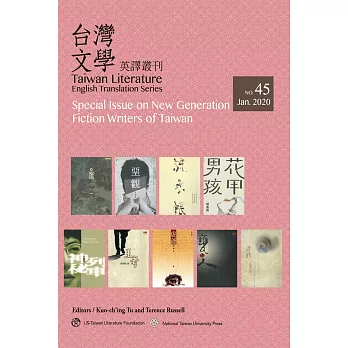

















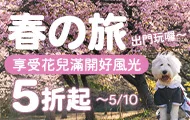

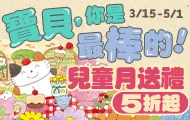
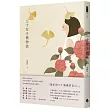
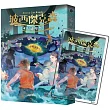
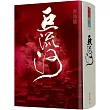
 博客來
博客來 博客來
博客來 博客來
博客來 博客來
博客來 博客來
博客來